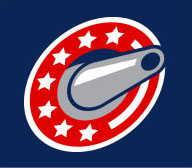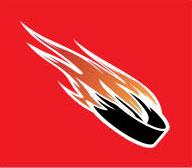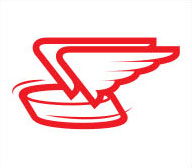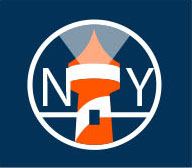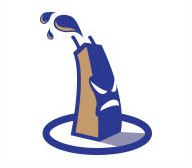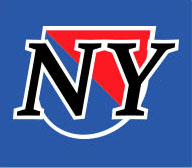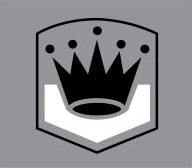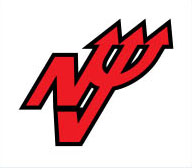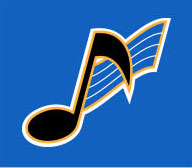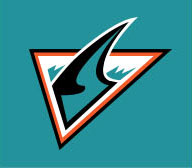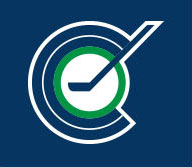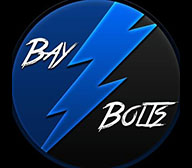Pat Verbeek Interview With Shannon and Millard
By Michael Walters
Anaheim Ducks General Manager Pat Verbeek joined John Shannon and Darren Millard on The Bob McCown podcast earlier this week. Below is a transcript of the show. Shannon’s and Millard’s comments are in BOLD. Verbeek comments are in quotes.
Shannon: How do you feel your team’s performed so far?
“Well, it’s mixed in a six-game win streak, now 8 game losing streak. Won here and then lost two again. I would say we’ve lost a lot of one-goal games in the last 10 here, so that’s been kind of discouraging. We’ve found ways to lose games and so it’s… I think it’s been frustrating, especially for the coaching staff, when you’ve so close. I think if I were to kind of take a step back and really look at you know how the team’s playing, I think I’m happy with how the team’s playing. Certainly, there’s a lot of learning to be done. We have a lot of young players. Greg and I kind of went through this the other day, we have eight players that are 22 or younger. So that’s playing a little bit of a part into it. But I would say at other times it’s been our veterans, you know it hasn’t been our youth that’s been causing the games to be lost, it’s been some of our veteran play that hasn’t you know helped us to win. Or they costed you know goals that at crucial times that cost games. So it’s a combination of a lot of things.”
Shannon: It doesn’t help with guys like Alex Killorn, you invested a lot of money in, misses the first 10 games either right?
“Yeah, it’s kind of been funny you know we’ve got Trevor Zegras on the injured you know IR, we got Jamie Drysdale since the game… second game of the season on the IR. Killorn, you look at him as well, broken finger probably four days into camp. He has missed all of training camp and add six weeks onto it. These guys have missed camp and it’s been basically, it’s been tough. When you miss training camp it’s hard to ramp up fast and be able to catch up to the speed of the game when guys have been going for a good solid for six weeks to two months.”
Millard: If you go back to the start of the season, how close are you to what you expected?
“Well I think as I looked into the year, being realistic if we were 500 I would be very happy. We kind of lost… like I said we run through a little bit of a string, but there’s going to be times during this year where it’s gonna flip again. We are close, we are close to turning the corner to winning these games. But you know unfortunately it’s not an easy league. There is a lot of teams right now, when you look around the league that are 500. So you have to show up each and every night and put your best game on the ice or you’re not going to win.”
Shannon: The challenge of the rebuild or I don’t know what you want to call it what you’re going through in Anaheim, called for a change in coach. I did not know much about Greg Cronin, in fact I listened to Darren’s interview that he did on his show with Greg and became enamored with the guy. This guy is… he’s got a magnetic personality, what did you see in Greg Cronin in your talks over this summer that said this guy was going to be a leader for our club?
“Well, I think when we sat down and talked the first interview went for six hours and the second one went for seven hours. He is a very smart man very… very dedicated very competitive, but I think what struck me the most what I was looking for I was looking for a coach that you know I knew we were going to have a young team in certain areas and I was looking for a coach that could really that had come from a development background and so for the last five years you know that’s what Greg Cronin has done. He’s been you know in the development stage you know coaching in Colorado and their farm team. So looking at his processes, looking at the detail of how he teaches really struck me and I thought if I was a player put in my shoes I’d be excited to play for him he’s a honest guy, he will hold you accountable. He’s not gonna let any standard of the team culture slip and so there isn’t anybody who hasn’t escaped you know Greg Cronin’s tutelage when it comes to video in the video session. So everybody has been… has been a movie star at some point in this this year. (laughs)”
Millard: I was impressed or surprised with how much x’s and o’s were involved in that first meeting, very little it was more conversation.
“There’s conversation yeah or we got to the x’s and o’s, I wanted to understand what made him tick what made him drive. And it was like I said I was interested really interested… you know he’s dived into psychology what drives players what makes them tick…. so there’s a lot of things that really caught me by surprise and I became more fascinated with as the meeting went on so six hours flew by and you know I would I could never say that about any meeting, but six hours flew by and I looked at the clock and said I’m getting out of here to drive back. Anyway so I said we’ll talk again and so the next one was even longer. Anyway I said I looked at the clock then I said okay I gotta go home now anyway so it’s good. It was very fascinating. I think the video that he brought along to the second meeting, really showed me the detail and you know he you know he tapes practices. So you can’t … you can’t take a practice off either so or else you know it’s one of those days he’s going to show you your effort practice so you can’t hide and there’s no hiding I think that was a unique from a unique for me on a lot of different levels. So there’s just many things that I really like about him.”
Millard: Have you ever heard of a coach recording practice and using it as the video tool and reinforcement with the players? I haven’t.
“No, not until Greg Cronin. No. He said I used to do it with the Eagles in Colorado all the time and he showed me some teaching some of this teaching sessions with different players and I said ‘holy cow’ like I said our guys are going to love this. They haven’t seen or been taught this sort of detail with not only checking, forechecking just different fundamental skills that you need to know to be able to you know to defend at the NHL level.”
Shannon: You know what one of the things in meeting him when Anaheim played in Edmonton, he spoke about the challenges of trying to get leadership out of veteran players that have never really know truly been leaders. He talked about Fowler, he talked about Silfverberg, that this is a team that didn’t lead by that style and he said that that was one of the biggest challenges, but he’s where would you put him? Is he 50% motivational 50% tactical where… where would you put his numbers?
“That’s a tough one in the sense of percentage. I would say it’s probably 80% honesty you know and I think that you know as a player yeah sometimes you don’t like to be critiqued. But he’s honest like that and he’s honest in front of the whole group you know with not only leadership but your you know your play your players you know and your role in you know on the team so I think when everybody’s kind of get over that and you know you’re kind of in it together I think that’s where he you know gets his motivation his honesty his accountability. And you know there’s other times where you can be can be a hard ass. Other times he’s not you know he takes a more practical approach and he looks at different ways of motivating you a different way not necessarily… doesn’t have to be yelling and screaming there’s just that he finds out what motivates you and starts pushing those buttons.”
Shannon: How would you define your interactions after your two long sessions in the in the interview process. How do you interact with him on a daily basis or is it …
“Yeah it’s I would say it’s pretty daily I mean I’m not here all the time I’m you know I’ve got other things going on. So there’s times when I watch practice. There’s time sort of you know obviously I’m watching all of our games interact with them after I think the biggest thing is you know after a loss and you always go through the process of what went wrong and and all of that sort of thing, but I think we got a really good relationship I think we think the game the same way. I love his competitiveness, love his hard work he’s a hard hard worker which which you know I love looking for and so we’re always pushing to get better and always looking from that aspect and I think that you know as far as you know the wins and losses it’s not where we would like to be, but I think it’s you know the whole relationship and how we’re going about turning this ship around is going in a good direction.”
Shannon: Two quick ones on your head coach. What was your reaction when he got booted out? Was there a bit of a smile on your face? That’s competitiveness?
“Well (laughs) he got a little fired up you know and I just you know it’s like you know this we’ve had you know we’ve had these talks to where we… okay Greg like we just have to calm down. We have to try be calm and I get it. I said that’s why I’m not coaching I said. Because I would be losing my mind as well, but you know it’s easy for me to say because I’m not down in the heat of the battle. But I think it’s good I don’t know, he’s really competitive and he’s you know he’s pushing our guys. You know I really happy with you know our team competes they never… they don’t quit working and to me that’s all the the rest of the stuff that’s going to help us win games is going to come and but you know these cornerstones as far as work ethic and compete which are pillars are winning have to be there and and for you know for the most part on the nightly basis they’re always there.”
Millard: Did you really need the seven hour meeting after the six hour meeting to know he(Cronin) was your guy?
“Did I need this? Yes I did. Yeah I did I wanted it because ultimately I wanted to understand. This is actually a great process you know I II coach junior B hockey I’ve coached you know minor midgets and bantams. But it really this whole process forced me into I’ve got an idea of how I want my team to play, the types of players I want to bring in and I wanted to make sure that you know the systems and all of that stuff is going to match what he’s looking to do. So it was a a really cool process to go through and I’m so glad that I ended up having you know spending time with them to go over detail after detail; whether it’s power play, penalty killing, you know forechecking you know structure in our zone or how we defend it’s important to go through that seven hours.”
Shannon: Early in the season you raised a few eyebrows when you announced that Leo Carlson was going to play under the load management system. Has he played more than you thought he would play now or is he on a schedule that you liked the way he’s played?
“Well I think load management it’s not the correct term. I think everyone’s looking at it I don’t look at it as load management. It’s probably more game management and to the point to where I could actually say it’s overload management now if you wanted to. Because there were times he got one day off per week and the other ones were not, they were a lot of fun for him. So the games were the fun part for him. So I looked at it like there’s there’s a reason why I sat there after I looked at development camp and I looked at it I went okay like he looked tired like he went to the World Championships, their team played almost to the end of it. The combine was late so he came over for the combine so that was almost the middle of June and that came for the draft and then he came to development camp. And he hadn’t had a chance to do any training from you know basically April on which you know for young kid like that it’s vital that they get you know a good formal training.
So I looked at it in a sense okay when he got the training camp I saw rookie camp there was a burst in a step again. He had energy, but as I looked over the course of many 18 year olds coming into the league. A lot of them get hurt and so they get banged up and it’s not that they can’t play the league, but it’s they’re just physically not strong. And these young players that are really good well they’re going to play against the best defensemen in the league they’re going to be matched up against men constantly and so I thought it would be a good opportunity I spoke to my sports science guy to see if this was feasible and so that we you know we chartered a course to kind of you know could we do what we needed to do and still have him play. And the answer was yes and so now you’re seeing him he’s in a different phase of what we’re doing now. So you’re going to see him play in three games a week now and probably you won’t see him playing back-to-back games until probably the middle of January. Then things are all going to change from there.”
Millard: I didn’t realize it was that fluid.
“What do you mean by that?”
Millard: Well that it came up so late and then worked its way through camp and the season.
“Well it came together…I’ve been thinking about it for a month after the summer. So it’s just a matter of it I wanted to see what he looked like in camp you know was and I going to keep him in the NHL team or I’m going to put him in San Diego because he’s eligible there? Or could I put him back in you know with Orebro there in SHL. So it was in a sense kind of fluid, but we had planned we had three different plant that we had you know laid out and depending on the track it was going to be mostly dependent on Leo and how he kind of played. When you know when I got when we saw him play with the veterans and how he and how he looked there it was it was a no brainer. Now we just had that you know kind of layout you know just formalize the plan that we had already kind of set out to do earlier.”
Shannon: So that’s the hockey side and that that makes a ton of sense, but he’s gone from Sweden the Orange County… Newport Beach… Laguna you know the culture shock is something as well did you manage that?
“You know what we helped him… we helped them find a place. You know to where he was close and then I kind of got you know Silfverberg to kind of help go buy a car you know. So I’ve talked to other guys so I mean yeah you know when I was 19 I had no one go with me and help me by you know by my first car you know. So I just think it was other than that you know like I asked him you know and you know would love to live with you know if you want to live out anybody else he said no I want you know I’ve been living on my own since 15. So the kids have been three years he’s been on his own. Now speaks the language there’s a few things we need to help them with you know it’s just you know when it comes to maybe getting a phone or stuff like that, but overall you know the kids in a good spot but he’s a lot further ahead than I was at that particular age.”
Shannon: What did Mel put you in?
“So I don’t know if you guys have ever seen the movie Smokey and the Bandit, but anyway Trans AM.”
Millard: “No way.”
“Yes, I bought a red Trans AM. Boy I got a lot of speeding tickets. (laughs)”
Millard: “T roof everything?
“T roof, the whole deal.”
Millard: Oh I’m so jealous right now!
“Yeah, it was a fun car to drive. Like I said I got a lot of speeding tickets. Red seems to light up on the road when cops see you going by.”
Shannon: I’d like to know what your general manager thought of you getting speeding tickets?
“I didn’t really tell him much I can tell you that. Poor Max McNabb when 1985 when I cut my thumb off as you know there wasn’t a lot of communication. So I ended up when I did cut my thumb in that farming accident I was basically getting ready Max called me says yeah I hear you got a bad thumb said don’t worry Max it’s like a broken thumb I’ll be back playing I’ll be back ready to go in another two weeks. No one knew the severity of it. It’s the way it was.”
Shannon: The only blessing Pat is it was Max McNabb and not Lou.
“Yep, Lou came later.”
Shannon: So your influences, first of all did you ever imagine you know you’re finishing your career playing …winning the Stanley cups playing the game the way you played. You ever thought you’d be a manager?
“You know it’s funny I asked that question. I actually looked at being that at 15 years old and you know it’s funny to have premonitions at seven years old I knew what I wanted to be and and really had a gut feeling and I was going to be able to accomplish that at 15 it was the same sort of thing and where I got it from was mostly yeah we have a pro a summer pro Hockey League. I’ve played with the Hunters and you know Tony McNee, Jamie Hislop but I’m just you know numerous college players and I was actually captain one of the teams at that I think 17 and I kind of as I sat because they used we used to have a draft as well you know during this you know during we have come over for you know they meet some of the other guys they have we all have a few libations and we draft. So that if it’s that kind of I got the bug you know being able to put together a team pick you know drafting a goalie they make sure you had a great goalie that would show up every Sunday night and four quality defensemen and I had four quality defensemen that showed up every night and probably for three years in the and our achievement end up winning the you know the championship you know in the league.
So that’s kind of where I got my bug and it wasn’t until I sat down with an interview with Kenny Holland in Detroit, wanted to get back into the game and I was fortunate you know to get a pro scouting job and he basically asked me you know what do you want to do. I said well someday you know someday oh I’d like you know to be sitting in you know your chair and I asked him how do I how do I do that. He laid out he laid out a plan for me and I just basically followed the plan to today.”
Millard: Is it harder that you thought?
“Is it harder? I think you know there’s only right now there’s 32 jobs probably when I started out there was less. I think that my route going to propose scouting into the director of pro scouting the director of player personnel and systems manager and learning a lot there. I’m glad that I went through the path that I went to some other GM’s getting you know they take different paths but I’m glad that because now I understand every single job you know encompasses you know on the hockey up side that is what it takes… what it takes to be successful the hours and the games that you need to put in to make sure that you know you’re you’re doing your job you know when you start either recruit, but draft and then you know sign free agents as well so. Was it harder? No I think it was just at the end of the day just being patient and being involved with good programs you know when Steve and I started in Tampa you know our programs going well and now you know we went to Detroit you know the same port of thing and so now I’m I you know now I you know I get to direct the ship versus you know being someone that helped.”
Shannon: What lesson would Kenny have taught you early in your time there that has stuck with you and I guess the same thing with Steve, what did you learn from Steve? Because for Kenny was never a player you were a teammate that’s a different animal?
“Well Steve and I were linemates I think when Steve and I really got the same as players you saw the game and a lot of the same ways I think being not being in the room when Steve was talking to other general managers agents and not not sitting in the chair or making the decisions but being part of those conversations and listening was very very helpful. The hardest thing is when you’re you know when now when you sit in your chair and now you have to make those call. You got to have those conversations and just you know developing your own style of how you go through whether it’s negotiations or you know trades is a is a different you know it takes a little time and I’m just kind of I had a lot of you know practice in my head dry runs you know just being alongside with Steve.
I think with Kenny, there’s so many things Kenny very smart dedicated and I think seeing that on a daily basis realistic in your expectations of how players are and at the end of the day Kenny’s advice, Pat make sure you know players, that’s the bottom line, again even though you’re a general manager you’re still a scout and you still have to know players.”
Shannon: As a player confidence is such a factor as a coach that plays a role too I’ve never asked this question to anybody before but do you have go through waves or of confidence or are you more confident now than you were three years ago?
“As far as in what aspects?”
Shannon: Being a manager.
“It starts to slow down like when I first got here you know water through a fire hose like there was just so much to do and so you know things… things that I had in my mind things that when I got here that needed to you know be put in place things that needed to be changed and so now I’m kind of you know we’re we’re at a we’re at a place now where things are you know things are starting to run I mean you always have little you know brush fires that you gotta put out on a on a daily basis. You always have to manage you know there’s managing situations there’s managing people so it’s that becomes just common part of the day but the processes and the systems that you know are are kind of now in place the job has become it’s not an easy job but it has become easier.
It’s now do I feel confident yes that’s I mean I feel comfortable in the sense that okay like we’ve got a direction you know we’ve been able to draft some good players we’re you know we’re getting a team in a in a going in in a good direction that I feel comfortable with and so now we just the hardest part right now is remaining patient not trying to push too hard too fast. Not only you know when it comes to forcing things and trades but also be patient with our young players you know and and put myself back in the shoes when I was 19 years old playing in the NHL and you know lowering my expectations even though these players are really good they’re going to make mistakes they’re they need to learn things and they need to learn them in some of the harshest environments and when it comes to winning and losing and so but they have to go through those lessons and for me and the coach not to get too down on them when they do make those mistakes. I was a prefect player when I played. (laughs)”
Shannon: Are You Naturally Patient?
“No actually no. No actually, if I’m… if I was patient I probably wouldn’t have cut my thumb off back in 1985. But no it’s I think age is kind of helped you know and actually that lesson in 1985 is kind of slowed me down, but no I’m I kinda I’m I guess go getter you know you could say that but I have to temper and just you know let things go a little longer. You know it’s funny Steve Zyerman’s helped me with that like Steve’s very patient and he’s has you know been around him he’s slowed me down a lot.”
Shannon: For those that don’t know, what happened to the thumb like how do you do it?
“I severed it on the farm with an auger I fell, my hand went into the machine as I slipped on the machine and hand went in. It’s kind of it. It wasn’t pretty but anyway it all turned out well.”
Shannon: Wow. When you talk about Steve and Kenny I know Kenny well ,I don’t know Steve well. My perception is that one is very low key and patient and the other one is very communicative and consensus building. Kenny’s always there even even if Kenny walk down the street and see somebody with a boiler slope butter on and say so what do you think we should do? You know it’s he’s always asking questions. Are you a consensus builder or are you just are you a guy that has a decision and make it make it looks like you’re a consensus builder?
“No I would say kind of a hybrid of that. I would say consensus I gather information and get as much information as I can and then I make a decision so it’s like I would say it’s kind of a hybrid of what you’re saying.”
Shannon: And are you as secretive as Steve?
“Yes very much.”
Millard: I was going jump on that.
“Very much working around him. Yeah I’ve got that kind of that’s rubbed off as well.”
Millard: You’re fine remember playing being around you, this conversation, but you’re really low profile so that’s a conscious decision to be low profile ?
“Yeah I don’t yeah that’s I don’t need it, don’t want it, if it happens it happens if it doesn’t great. Let’s keep on keep on going.”
Millard: I was so happy that that you were coming up with John that they’d be able to talk to you because I don’t get to do this very often with Pat Verbeek the general manager.
Shannon: It’s that brief stint of television that he did in Detroit you did do a little TV in Detroit didn’t you?
“I did, I did for three years. So basically when I retired I got into coaching I coached my son obviously I’m sure you guys have heard now coached Pat Kane and so Pat Kane lived at my house. I coached that minor midget honey bake team and then from there I went to coach junior b where I coached my son there for a couple years and then I moved on the pro scouting so. But during that time those three years I was doing color commentating with I think I got the bug when we missed the playoffs and I did some work with ESPN during the playoffs and I kind of you know do some analysis between periods with ESPN and John Buccigross and then I kind of was looking to see to stay in the game and I kind of you know dealt with the color commentating and I joined that. So I did three years of that and I also went to school at the same time so I went to university and trying to get a business degree so tried is the word so I ended up getting a job with with the Red Wings and the school kind of fell by the wayside.
Shannon: Did you know Patrick Kane was good when you coached him at that level?
“Yes you know it’s funny I saw Cam Fowler when he was 14 years old, I saw Pat Kane obviously coached. Peter Mueller played for team too for different tournaments but yes you can see at that age the ones you know unless they get into some sort of trouble you know socially or just you know girls become involved into their lives too much you know that sort of thing you can see at that age the ones that are going to play.”
Millard: How far is your program away from challenging for a playoff spot?
“I would say at least two years. You know yeah, being realistic and honest, there’s you know there’s going to probably be a couple more young players inserted in the lineup next year and so they’re gonna have to go through lessons and you know learning and mistakes so you know I figure another couple of years you should be knocking on the door.”
Shannon: One of the things I hear about the living and playing in Anaheim is how great the Samuelis are and how what a treat it is to work with them and somebody actually described them as the best donors in the NHL to me. You’ve been around pretty good owners when you think about and Jeff Bennett.
“Yes, Jeff Bennett is awesome obviously, Chris Ellis is good, Henry is there you know he’s been awesome to work for certainly you know we probably speak every two weeks, you know one way or the other, whether I call him or he calls me so it’s…”
Shannon: There’s 20 managers, there’s 20 managers in the NHL now saying “yes!”
Millard: Once every two weeks seriously?
“What well I think the wonderful part is he lets me do the job. You now he let’s me do the job. Certainly I have a we have a lot of we obviously lot of discussions Henry he knows what’s going on so he’s invested in the team completely and so, but he is real quiet and like I said he just let me do my job.”
Shannon: “You played your whole career on the east coast you managed part of management team on the east coast how are you gonna lament being a Pacific Coast guy and talk about the extra travel?
“Well since you brought that up the hardest part for us is we have a curfew that we can’t fly into Orange County and so what ultimately ends up happening is when we came back after games we have to fly to LAX. That just adds another hour and a half to getting home. We have had two maybe three trips where we’ve got home at 3:30 in the morning so it becomes that takes a toll it’s not so much maybe flying… flying seems to be the quick part it’s the time it takes to get home it’s really wears on you.”
Millard: John’s an eastern guy like he doesn’t understand being in the Pacific Time zone.
Shannon: Oh yeah get out of here.
Millard: Honestly Pat and I, we can commiserate over this because it’s different .
“It certainly is. I played in Dallas… so Dallas is exactly close to a lot of things either so I’ve kind of got you know used to that but you know at least when we got when we played Tampa we could we could get home and you know we’re in our beds by 2 clock you know but the 3:30 that kind of that whacks you that whacks you really hard. Sometimes it’s hard to recover from that stuff you know the guys aren’t taking care of themselves well.”
Shannon: You talk Kenny said can you give me advice knowing players learning players in addition to watching your own games you’ll still go to junior games college games tournaments?
“Absolutely. Yep no I guess I got it in my blood I like going to games I like watching games yeah I enjoy the go into a lot like games and I just like to watch good players obviously you’re looking for good players looking for personalities that you kind of fit into your group that are gonna give your team a little different a little different vibe when they play. So I’m constantly searching for that.”
Shannon: You know for that not that there’s a secret sauce but is there when you see a guy on the ice is there something that will jolt you to say hey I gotta keep an eye on this guy is there something out there?
“Well there’s a few things I like players that play with energy and work ethic you know that’s the first thing that I really search out you know obviously these things are obvious points you know you always look at you know the hockey sense of the skating you know that those are you know vital components and then you know you know can they produce some guys you know don’t look great but they can produce so sometimes you have to look overlook some of their things that they’re not quite as talented but when they produce you have to kind of give a look over twice.”
Shannon: Trevor and Jamie close?
“I’m not sure honestly. They are on the trip, they are skating with the team. But you know I think they’re gonna have to be either you know obviously their conditioning is going to have to be ramped up they’ve missed almost two months again. Jamies missed almost two months again. So I want to make sure that he’s in great physical shape you know before he returns because I don’t want them you know the same with Trevor. I don’t want them returning and getting hurt again. You know be one of those things so it’s there’s… physically they might be healthy but you know they have to get training part into it to return.
Shannon: It wouldn’t make sense to send them to San Diego for some conditioning?
“Would it? No because I’m sure they’ll be some guys that might wanna take a couple crack shots at them. You know what I’m saying, I rather not do that.
Millard: Now I am worried because you said you don’t share a lot there earlier whether I know that Jamie or Trevor are closer or not.
Shannon: There he is just trying to get the information out there you’re doing the right thing there Pat that you’re just you know you’re going to the line and not going over. That’s the key.
You can listen to the podcast here The Bob McCown Podcast.
Support us by becoming a DucksNPucks patron! Members can win game tickets, Ducks gear, and more!
Want to start your sports media career? Then Join The Puck Network!
DucksNPucks is part of The Puck Network, which covers the entire NHL. There are openings to cover your favorite team(s) and earn school credits! If you are interested, then apply by filling out the form here: Join Our Team. What are you waiting for? Start your sports media career TODAY!
December 15th, 2023














